Weekend (1967)
“Are you in a film or reality?”
|
Synopsis: |
|
Genres, Themes, Actors, and Directors:
Response to Peary’s Review: In what is “meant to represent bourgeois hell, fires devour the wrecked autos, dead bodies line the roads, and irritating leftwingers of all types come up to our insensitive traveler to spout their radical philosophies;” eventually the annoying couple’s “madcap adventure” includes kidnapping and cannibalism. Peary notes that while “Godard includes moments of political discourse, as well as references to favorite films (Johnny Guitar, The Searchers, Gosta Berling, etc.) and quips about the relation of art to reality,” his “main goal was to make his arrogant, cruel bourgeois couple literally go through hell.” He points out that “in the film’s most famous scene [DP] Raoul Coutard pans his camera left to right for 10 minutes as our couple drives around a traffic jam that’s as ridiculous as the ones Laurel and Hardy used to get stuck in, but just when we’re most amused we see the horrendous accident and dead bodies (the first we’ve come across) that caused the jam and are shocked out of our smiles.” Peary argues that while the “film was most impressive when it was released,” “today the humor still has punch and the visuals are startling” — however, he finds “that the picture peters out once the guerrillas turn up.” I was disappointed, but not surprised, to find that this culmination of Godard’s initial narrative output — before his formal turn to radical revolutionary politics — remains as challenging to sit through as many of his other ’60s titles. It’s not easy to watch, nor was it meant to be — so it’s difficult to judge the film on anything other than Godard’s integrity to his own vision (which one could argue — may have to argue — is spot on). It’s likely that all film fanatics will want to have seen Weekend at least once (Peary refers to it as “essential Godard”), but be forewarned that it’s pretty relentless. Notable Performances, Qualities, and Moments: Must See? Categories
(Listed in 1001 Movies You Must See Before You Die) Links: |
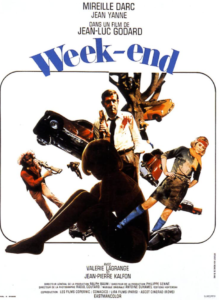
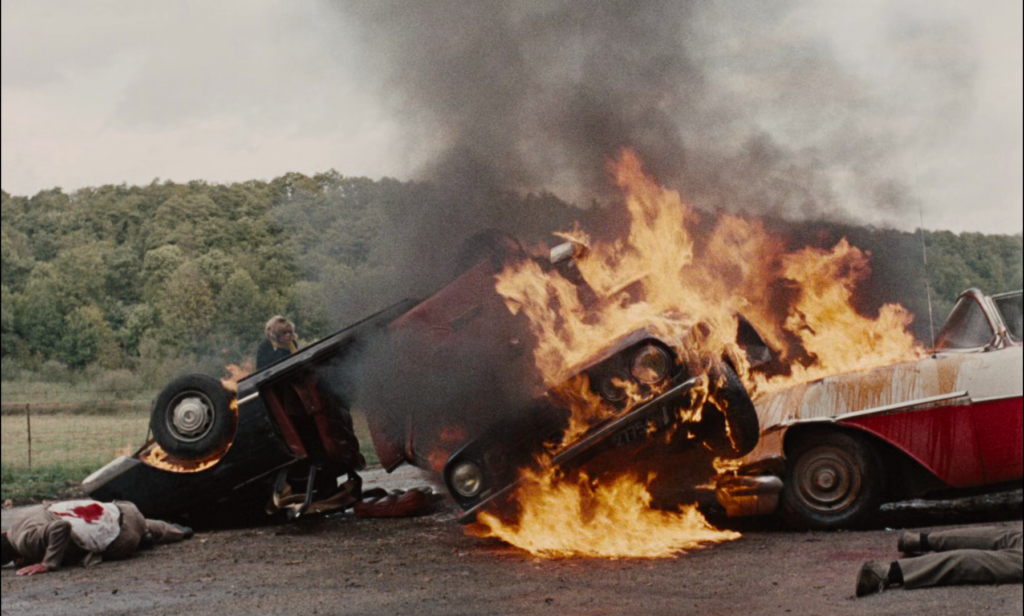
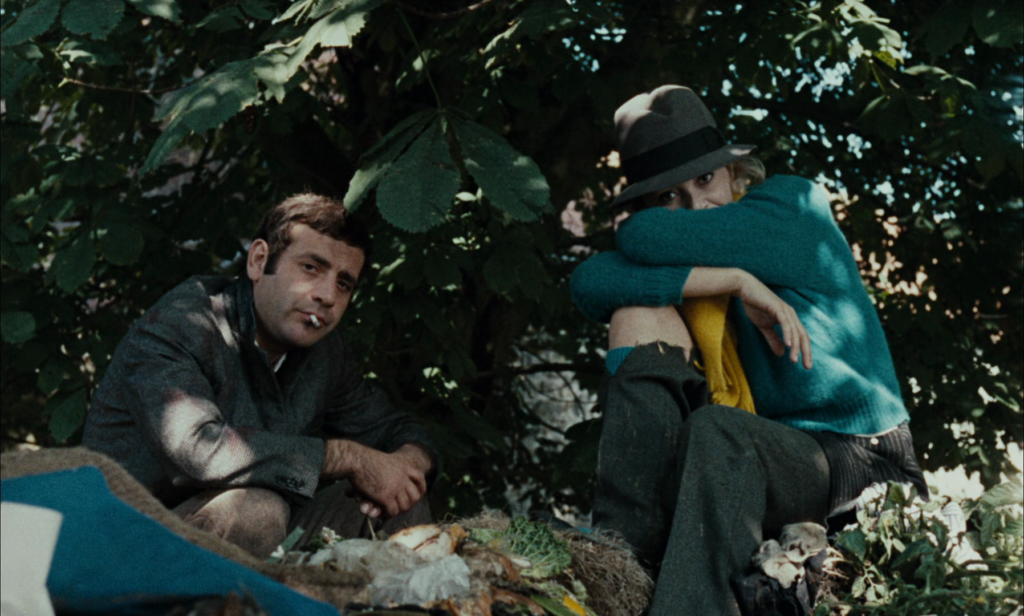
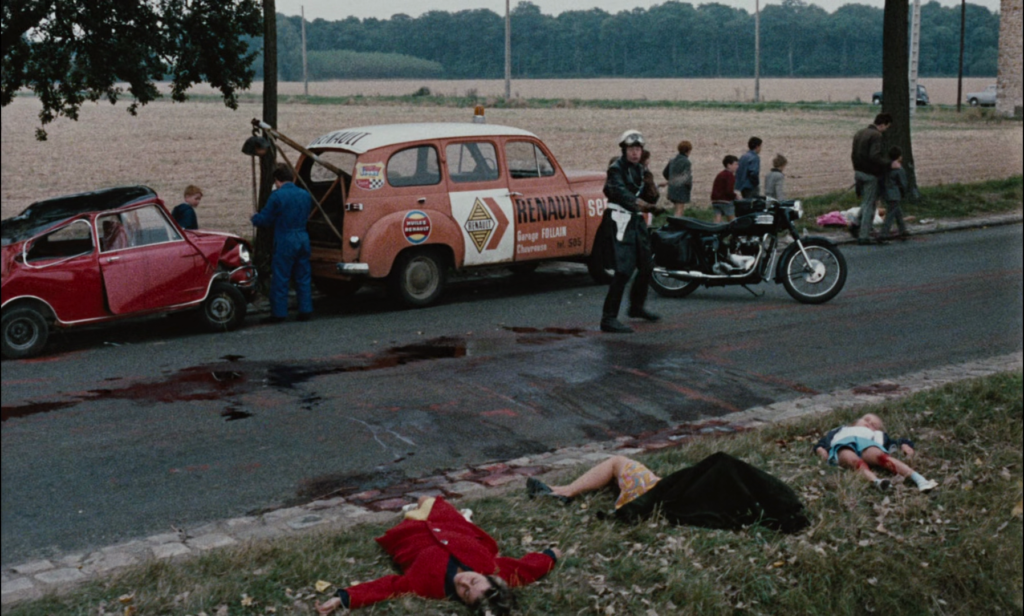
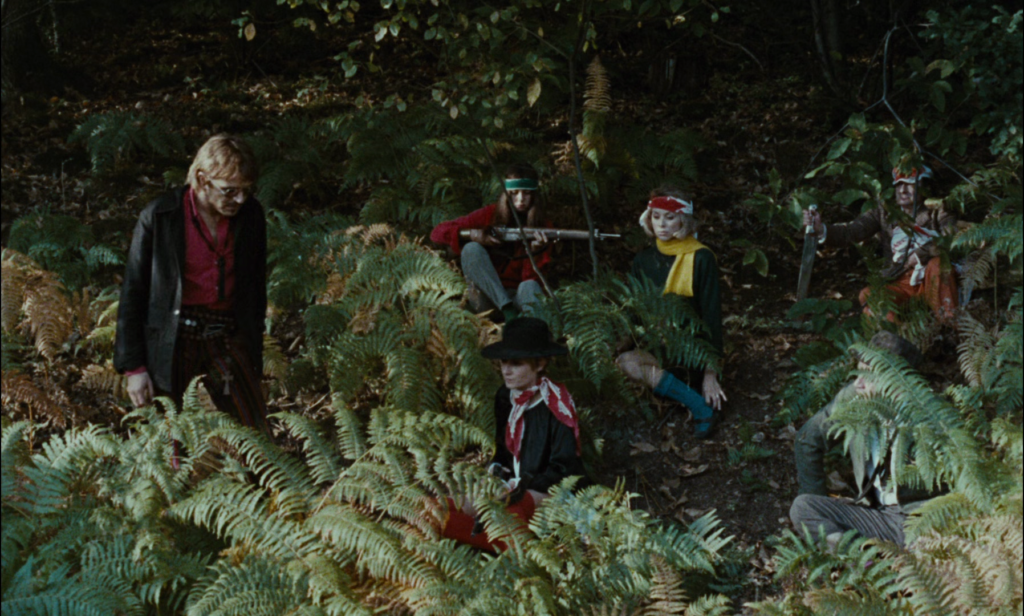

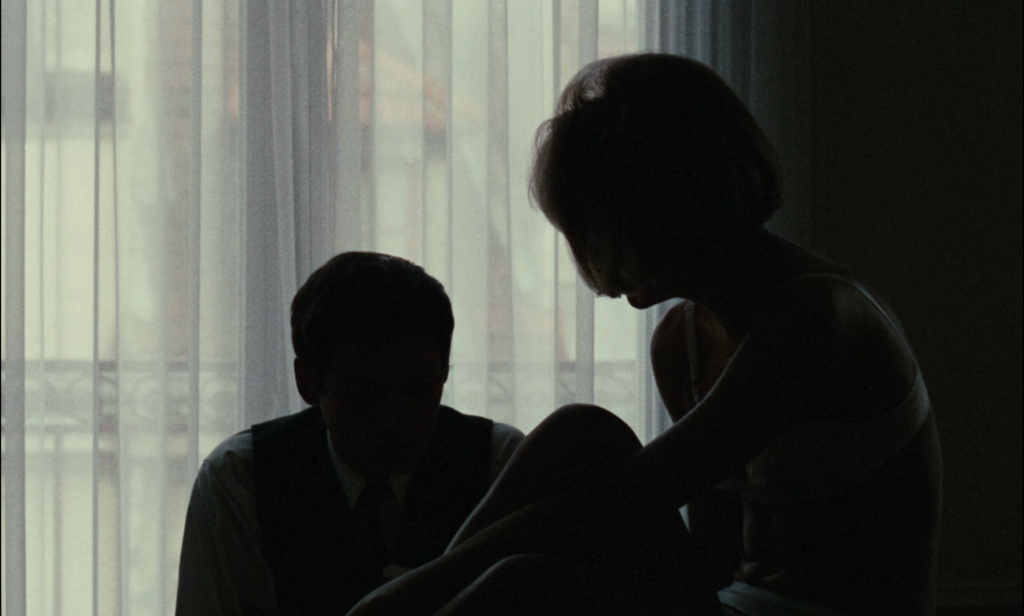
5 thoughts on “Weekend (1967)”
First viewing (5/14/21). Not must-see.
Still more largely pretentious nonsense from Godard – this time, notable for its extended tracking shot of what seems a hundred or so cars piled up behind a road accident; something which merely upsets the bulk of those behind the ‘carnage’, impatiently and selfishly waiting.
[When I was living in NYC, there was a popular video store in the basement of what was once the equally popular Bleecker Street Cinema (which specialized in double-bills of classic world cinema; I went there constantly). The shop had a whole section devoted to Godard films, labeled ‘GOD’. …. ‘Oh, please!’, I recall thinking.]
In this particular film, Godard manages a moment or three of genuine humor: i.e., Yanne flags down a car to catch a ride, only to be asked by the driver, “Are you in a film or in reality?” When Yanne says he’s in a film, the driver scoots off since “all films lie”. (I doubt Godard felt that his own films lie.)
As with most of his films, ‘Weekend’ is yet another excuse for Godard to blather on with political discourse or rant (justifiably) about one of his favorite targets: “The horror of the bourgeoisie can only be overcome by more horror.” He even includes his general outlook on humans, deriding “man’s immense horror of his fellows”. (Or is it Godard’s own horror? Is there no room for goodness in the world?) It remains puzzling why he believes this kind of verbal diarrhea-lecturing is appropriate in a narrative film. Or maybe I’m just not in sync with his… vision.
I originally voted No, then relented since I can’t imagine film fanatics not wanting to have seen this one (historically speaking). But in essence – like you, I am not on the Godard bandwagon.
I could be wrong – because I don’t really remember; with Godard, it all becomes a blur – but, for the purpose of this site, I think (so far; and aside from his contribution to ‘Far from Vietnam’) I have only done a ‘once-must’ for one Godard film: ‘A Woman is a Woman’. ~ and even that recommendation was not done with enthusiasm. But I felt that I could reasonably choose that one so that ffs would at least experience Godard once.
As an aside… I did, not long ago, watch ‘Tout va bien’ & ‘Letter to Jane’ (but will have to rewatch them) and found that I was more receptive to them (as Godard’s work)… only to discover that they are not ‘pure’ Godard but collaborations with Jean-Pierre Gorin (who apparently took over a bulk of the responsibility since Godard was not in good health at the time).
I saw this one on the UK BD in the last couple of years or so. An unpleasant, pretentious load of fetid dingoes kidneys. But, it is essential viewing for FFs. Incidentally, the title on screen is actually: A film adrift in the cosmos … A film found on a dump … Week End. At least on the print used for the UK BD.
In the spirit of the Film Fanatic book, there are multiple Godard films worthy of inclusion. He is one of the pioneers of the French New Wave. “A Woman Is a Woman” isn’t generally considered one of his “must” see films (but I like it).
I tend to like much of his 60s filmography, but find his post 60s films to be the line where my tolerance wanes (although I do have a soft side for “Hail Mary”).
I consider the following to be must see: Breathless, Vivre sa vie (My Life to Live), Le Petit Soldat, Contempt, Band of Outsiders, Alphaville, Pierrot le Fou, Masculin Feminin, Two or Three Things I Know About Her, and Week-end.
I tend to enjoy most of them.